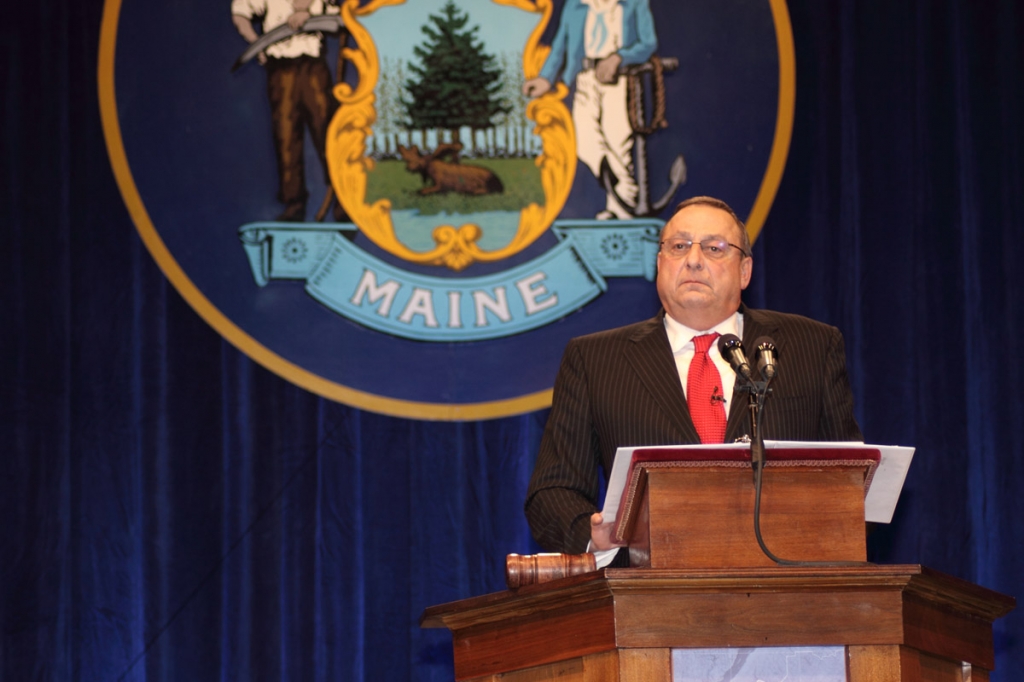Paul LePage asks Maine Supreme Court to rule on vetoes, adjournment
Not backing down, Governor LePage continues to insist that he has vetoed 65 of 71 bills which many state officials and legislators claim are now law.
Gov. Paul LePage has filed a request with the Maine Supreme Court to decide whether 65 bills that have been in question were vetoed or became law.
On Thursday, the first day the legislature reconvened, the governor sent the legislature 65 vetoes to consider, along with a letter expressing his interpretation of the Constitution and his assertion that the vetoes are valid and should be considered.
Each piece of legislation has been written into law by the Legislature’s revisor’s office. Democrat leaders in the House and Senate, along with Senate President Mike Thibodeau, elected Thursday to not take up the governor’s vetoes and treat the 71 bills as law.
LePage said in a statement Friday that he’s seeking the opinion of the Maine Supreme Judicial Court because his duty to ensure that laws are “faithfully executed” is in question. In return, he wants lawmakers to promise that in January they will reconsider his timber harvesting plan.
The governor will have to prove that the questions rise to the level of a “solemn occasion” for the justices to render an advisory opinion. He says that adjournment triggering a constitutional provision that allows a governor to hold bills until the Legislature reconvenes for three consecutive days. However, the LePage administration is arguing that the legislature adjourned on June 30th.
The governor took no action on the bills because he thought lawmakers had adjourned last month.
The contested bills affect many policy areas, including General Assistance for asylum seekers, expanded use of a medication used in drug overdoses, property tax breaks for Vietnam War veterans and birth control for MaineCare recipients.
Attorney General Janet Mills agreed with lawmakers that the bills became law because of the governor’s inaction.
While LePage suffered a defeat on that front, he scored a huge victory Thursday when the Republicans in the Democratic-controlled House sustained his veto of a bill that sought to force him to release more than $11 million in voter-approved bonds for land conservation projects.








